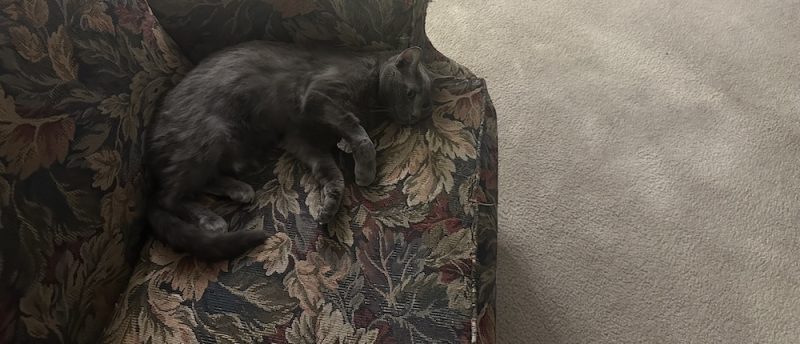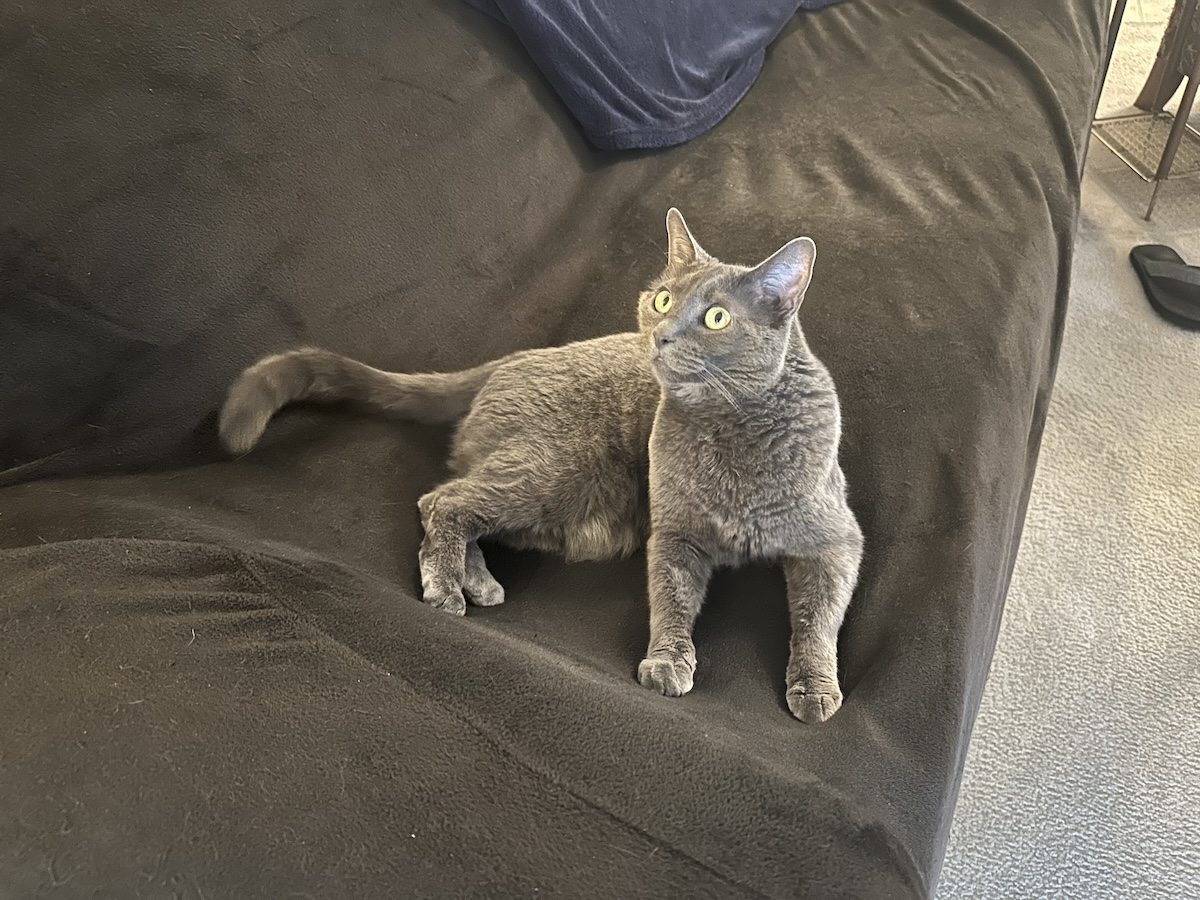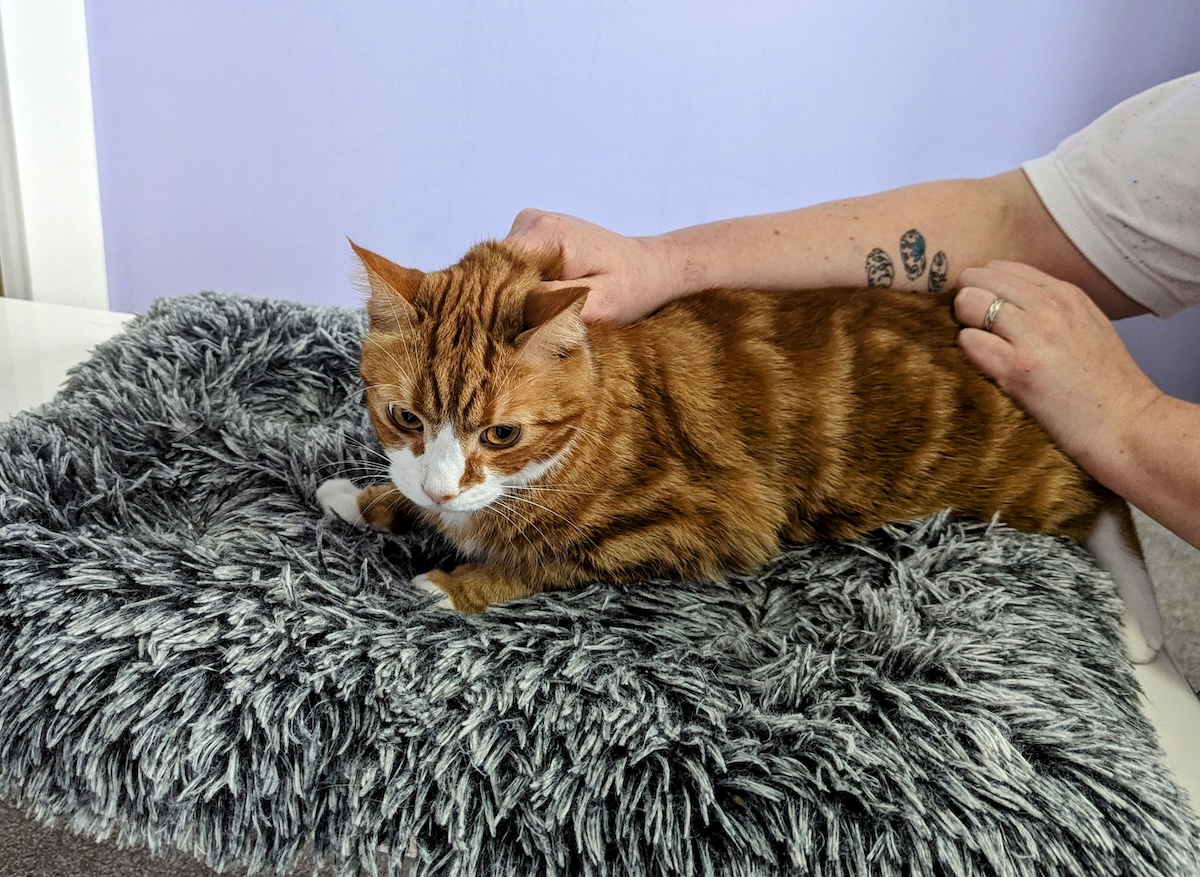Hi, I’m Christopher! Read my introduction to learn more about me and my silly Russian Blue cat, Olga.
When your cat knows a trip to the veterinarian’s office is imminent, you may have trouble locating them. I’ve placed Olga’s carrier in the living room for a few days before her vet appointments to confuse her, but it doesn’t help. She knows when I’m taking her to the vet because her appointments are always early in the morning, and I don’t feed her breakfast.
If I head to the bathroom to take a shower instead of feeding her, she finds a place to hide. I don’t have a grand estate, and it doesn’t take long to find her, but she’s clever and moves around while I’m searching. Her dark gray fur blends in with the dark spaces under the furniture, and I have to turn on all the lights when I look under the chairs, couches, and beds.
Hiding and Relaxing
Olga has different spots for relaxing and hiding. She used to nap under a bed in the spare bedroom in the morning while I worked, and if I needed to pick her up, it wasn’t difficult. When Olga’s content, she’s easier to handle, even if she’s sleeping.
It’s much harder to grab and coax her into the carrier when she’s hiding from fear. She finds a spot under the couch or bed that’s difficult to reach, and when I crawl under it to reach her, she takes off and evades my grip. After 20 minutes of chasing her around, I’ll finally capture her with a towel and wedge her into the carrier.
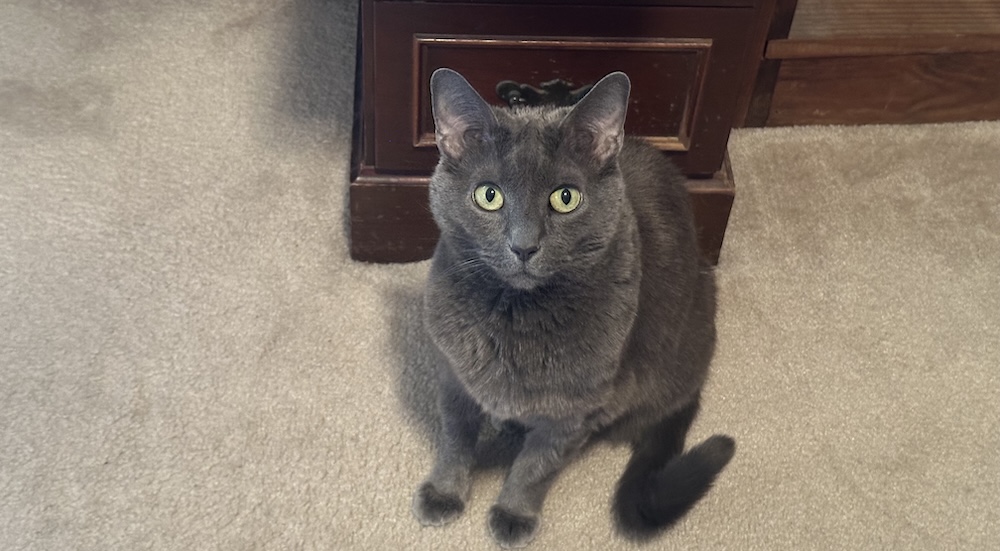
Creative Hiding Spots
A few years ago, she created new hiding spaces by tearing holes in the lining on the bottom of my bed and couch. I’m unsure when she did it, but it was probably the night she heard fireworks for the first time. I was impressed that she found another way to make capturing her more challenging. When she crawls into the hole under the mattress box, I can see the fabric sag under her weight.
I try to push her toward the hole so I can get her out, but she screams and claws me through the fabric. She doesn’t do it as often now, but I have to wear gloves to protect my hands when she does. Hiding is instinctual for cats, and while it’s annoying to owners who struggle to locate their pets, it’s better than the alternative.
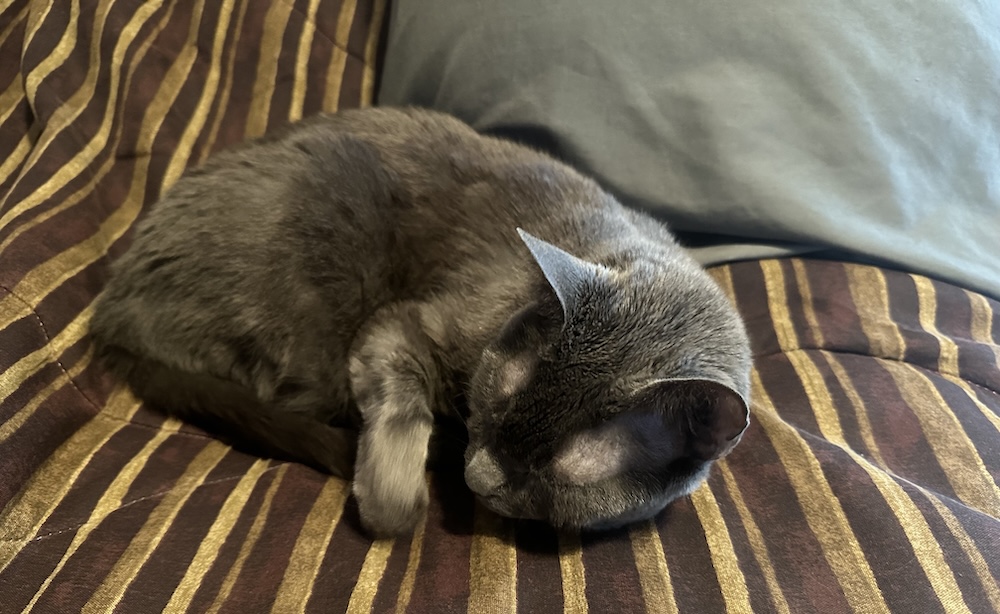
Respecting Their Restraint
Cats can teach us a lot about the “fight or flight” response since they usually lean toward fleeing rather than fighting, at least when they live indoors with humans. The cat haters’ greatest fears would come true if they favored fighting. Instead of hiding from their owners when scared or stressed, they would attack them.
Although cats are skilled predators, they don’t leap into the air and pounce on our faces when we upset them. Lacerated eyeballs and severed arteries aren’t common injuries from cats, but they could be if they showed less restraint.
- Read his previous article: Why Are Some People Afraid of Cats? How Olga Reacts to Other Humans
- Read his next article: The Remarkable Russian Blue: Comparing Olga to the Breed Standard


